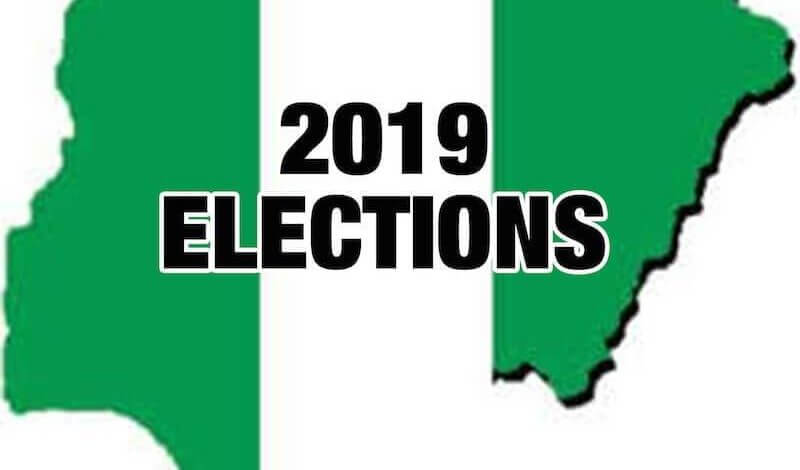The United States House of Representatives on Thursday December 13, 2018, held a hearing on Nigeria’s general elections coming up in February, 2019.
The U.S Congress subcommittee on Africa, Global Health, Global Human Rights, and International Organizations listened to the testimonies of Honorable Tibor P. Nagy, Jr. the Assistant Secretary, Bureau of African Affairs, U.S. Department of State, and that of Mr. Ramsey Day, the Senior Deputy Assistant Administrator, Bureau for Africa, U.S. Agency for International Development on the forth-coming elections.
Advertisement
Nagy and Day served as witnesses during the hearing with the subject: “Nigeria at a Crossroads: The Upcoming Elections”.
In his testimony before the U.S Congress Committee on Foreign Affairs, Nagy submitted that “the Department of State agrees with the view that Nigeria’s February 2019 national elections are a critical test,” and that “The conduct of the elections could have significant consequences for the democratic trajectory of Nigeria, West Africa, and the entire continent.”
Nagy, who admitted that the 2015 general elections in Nigeria was “by no means perfect,” however stated that the election was a step forward for Nigeria’s democracy as it “resulted in Nigeria’s first-ever democratic transfer of power to a non-incumbent party, thereby increasing capacity and improving conduct of Nigerian democratic institutions and election bodies.”
On the country’s upcoming 2019 elections, the U.S. Department of State official said, “ In advance of the 2019 elections, the U.S. government continues to support the Nigerian goal of free, fair, transparent, and peaceful elections that reflect the will of the Nigerian people.
Advertisement
“Through diplomacy, robust public engagement including with Nigeria’s youth and civil society, and democracy and governance programs, we are helping the country to strengthen its democratic institutions and processes. The United States does not support any single candidate.
“We support a democratic process that is free, fair, transparent, peaceful, and reflects the will of the Nigerian people.”
He listed the following three areas as part of the comprehensive strategy that the U.S government plans to use to coordinate a smooth process of the elections involving participants from political parties in Nigeria:
“*Support a free and fair electoral process, including technical assistance to Nigeria’s election institutions, civil society, and political parties as well as U.S. government monitoring of the election around the country;
“*Prevent and mitigate electoral violence, including conflict monitoring, peacebuilding programs, and peace messaging;
Advertisement
“*Support civic and political engagement, including support to Nigerian civil society election observation and parallel vote tabulation, social media campaigns to engage youth including through our Young African Leaders Initiative (YALI), “get out the vote” campaigns, voter education, and Nigerian efforts to counter disinformation.”
Nagy added that, “To advance our strategy, we have sustained high-level diplomatic engagement from Washington as well as robust and regular engagement by our Ambassador, Consul General, USAID Mission Director, and other officials based in Abuja and Lagos. Earlier this year, President Trump welcomed President Buhari to the White House and conveyed our expectations for a credible election. Two Secretaries of State, USAID Administrator Green, Deputy Secretary of State Sullivan, and many others have either traveled to Nigeria or met with senior Nigerian officials in the United States to underscore our commitment to free, fair, transparent, and peaceful Nigerian elections in the last twelve months.”
He noted some of the areas of concerns that could jeopardize a free and fair process in the 2019 elections as: “Potential attacks on the legitimacy of INEC and the electoral process for political gain; Intimidation and partisanship by security forces; Heightened insecurity, terrorist attacks on elections institutions, or violence towards voters, observers, or electoral officials; An inability of large numbers of internally displaced persons or persons with disabilities to vote; Voter suppression, the use of armed gangs for voter intimidation, and other drivers of electoral violence, including a lack of official condemnation of hate speech and disinformation; wide-spread vote buying that challenges the integrity of the electoral process.”
On his part, Mr Day restated the USAID’s commitment to ensuring free, fair, transparent, and peaceful elections in the coming elections.
He told the U.S Congress that the USAID had helped the Independent National Electoral Commission (INEC) to “institutionalize key reforms that ensure more credible and accountable electoral processes.”
Day submitted that the USAID does “not expect large-scale nationwide violence” but noted that “there will likely be some localized violence around the elections period– particularly in places that are already suffering from violence.”
Advertisement
On how the agency intends to mitigate the violence, the official said the USAID had, “woven efforts to prevent electoral violence into all of our elections programs. Examples include “Vote Not Fight, Election No Be War”–whose Peace Ambassador is a leading Nigerian performing artist– and “Stop Violence Against Women in Elections” campaigns, both of which work with local civil society organizations. These campaigns are part of USAID’s Electoral Empowerment of Civil Society project, with public messaging campaigns utilizing the aforementioned slogans. “Vote Not Fight” is working specifically in Kaduna and Rivers states encouraging the establishment of peace accords for the 2019 general elections.”
He added that the, “USAID is also funding an International Election Observation Mission to provide impartial observation of the electoral process, enhance the credibility of the elections, and to support the peaceful transition of power. In addition, the program will highlight the need for inclusivity, so that women, youth, persons with disabilities, internally displaced persons, and other marginalized groups are provided as full access as possible to participate in electoral processes.”



